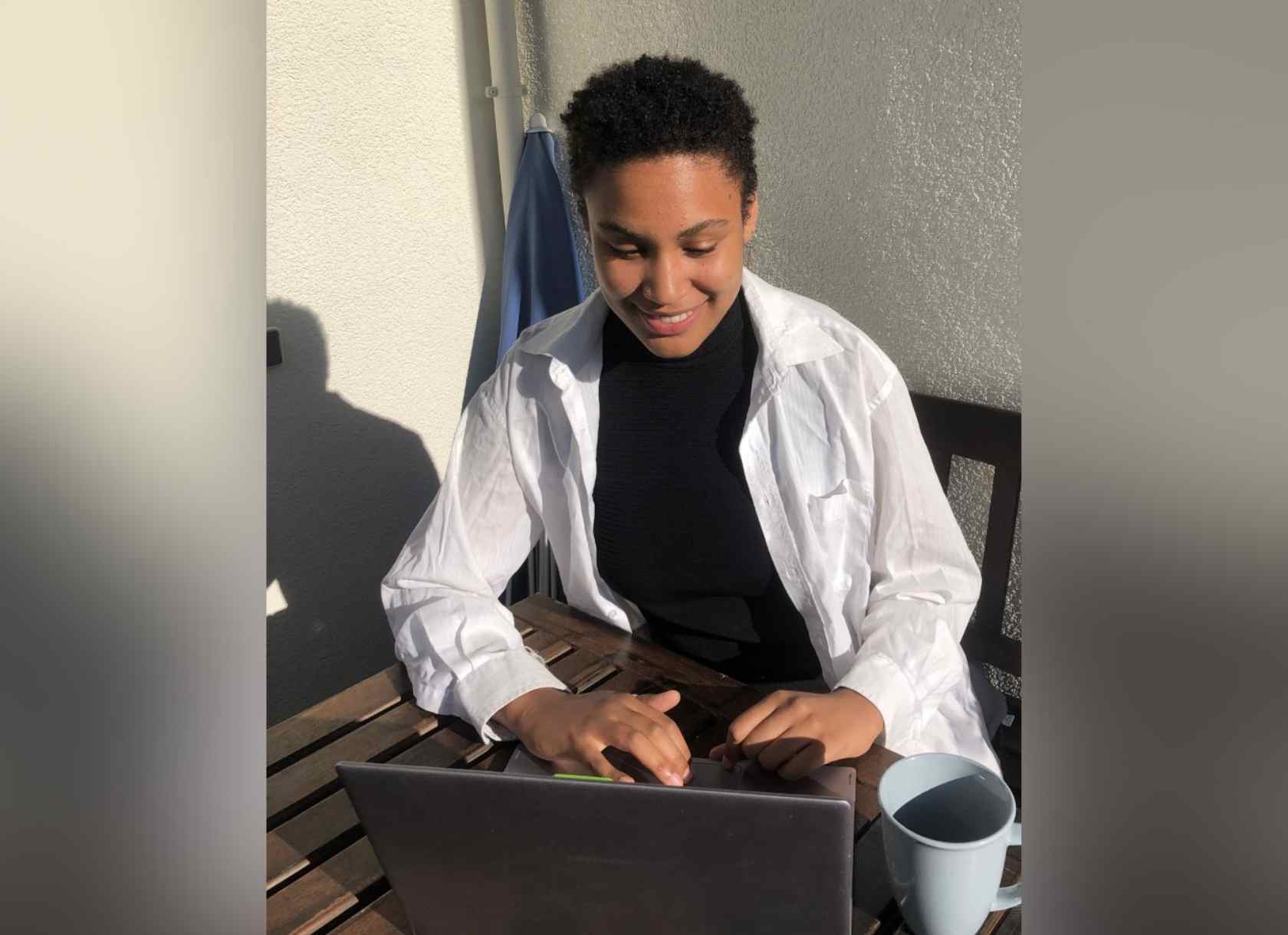By Laura Wilkinson

Intrigued by her home country of Germany’s initial response to the COVID-19 pandemic, philosophy major Chigozie Obiegbu ’23 is exploring why COVID quickly became the subject of the country’s epistemic crisis and what factors created a breeding ground for mistrust and conspiracy theories.
An epistemic crisis refers to a state of affairs when community members share impaired perceptions of reality, which are often associated with conspiracy theories. These crises are often politically dangerous, especially to the existence of democracies, as they attempt to distort reality based on one community’s specific beliefs.
Academic publications have previously explored counterterrorism measures, belief in widespread voter fraud, and the spread of social media disinformation through the lens of epistemic crises in the United States. Obiegbu’s research will expand this field of research outside of the US.
Obiegu’s summer research is guided by Pitzer College Professor of Philosophy Brian Keeley and funded by the Mellon Interdisciplinary Humanities Award, which allows Scripps students the opportunity to conduct a faculty-mentored summer research project based in the humanities. The rising senior is poring through past issues of German newspapers and publications to reconstruct the timeline of events during the first half of 2020. Specifically, she is looking for news about the country’s COVID-related public health policies, mistrust movements, and major anti-lockdown protests.
In August 2020, one such protest took place in Berlin, Germany. More than 38,000 people took to the streets to voice their intolerance for measures that had been in place since that April, such as six-foot physical distancing and mandatory indoor face covering requirements. The event ended with dozens of protesters breaking through the security walls of the parliament building in an attempt to storm it.
Similarly, during the early part of the pandemic, US-based protesters demanded that shelter-in-place orders be lifted, and businesses remain open. Both German and US-based protests were shaped by a collective distrust in political and scientific institutions, with their conspiracy narratives being quite similar, Obiegbu explains.
“Conspiracy theories and crises of trust in political and scientific institutions present a variety of interesting philosophical issues, such as society’s skepticism of expertise and authority,” Obiegbu says. “These issues are important to consider when thinking about how scientific and political institutions should communicate to the wider public, especially in times of crisis.”
Obiegbu is gathering data from various psychological and socio-political studies that have been published on this topic in the past two years, mainly looking at the demographics, motivations, and beliefs of protestors and the structures in which they are organized.
“Supporters of the far-right Alternative for Germany (AfD) party, and those who self-report severe financial problems due to lockdown policies, are more likely to believe in COVID-19 conspiracies and join the respective networks and protests. But the emerging movements in Germany are generally very demographically diverse,” Obiegbu says.
Obiegbu is hoping to discover how these conspiracy narratives are spread and communicated to expand Germany’s currently limited literature on the pandemic as an epistemic crisis, with tentative plans to submit her findings for undergraduate journal publication.
“One great thing about Chigozie’s project is that it demonstrates how the humanities can be cutting edge,” says Keeley. “Her project also explores how conspiracy theorizing is not just an American phenomenon.”
Adds Obiegu, “I hope that presenting my results to the wider Scripps community after the summer will give others an insight into how these issues, which have been widely discussed in the context of the US, have played out in a different country to give a more holistic perspective on the crisis.”

